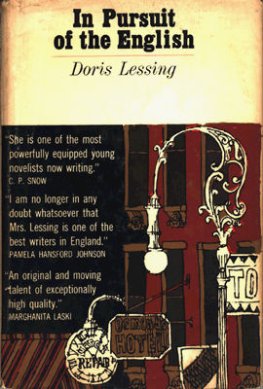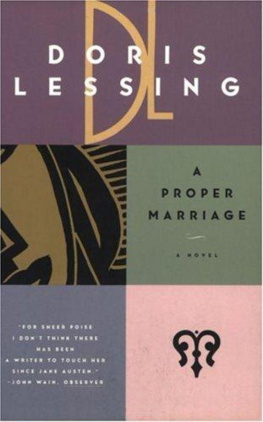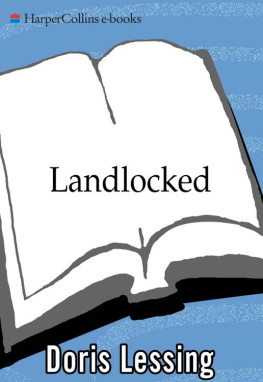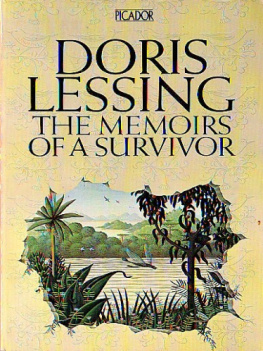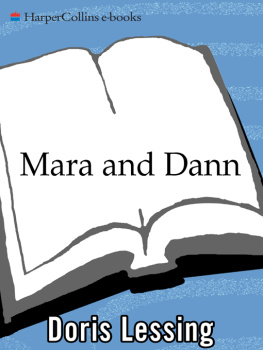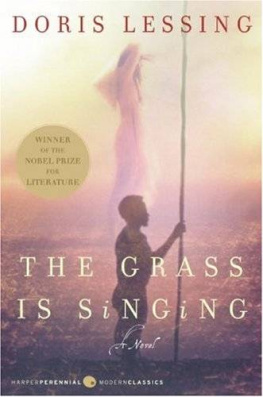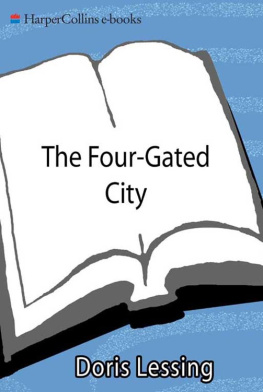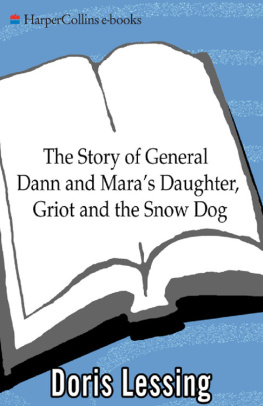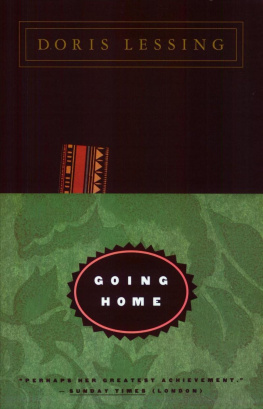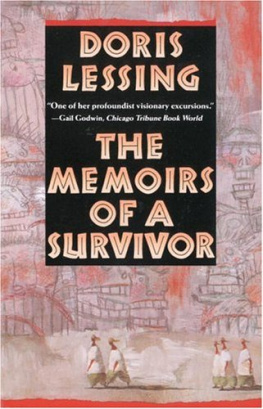Doris Lessing
IN PURSUIT OF THE ENGLISH
A Documentary
I came into contact with the English very early in life, because as it turns out, my father was an Englishman. I put it like this, instead of making a claim or deprecating a fact, because it was not until I had been in England for some time that I understood my father.
I wouldnt like to say that I brooded over his character; that would be putting it too strongly, but I certainly spent a good part of my childhood coming to terms with it. I must confess, to be done with confessions right at the start, that I concluded at the age of about six my father was mad. This did not upset me. For a variety of reasons, none of which will be gone into here, the quintessential eccentricity of the human race was borne in upon me from the beginning. And aside from whatever deductions I might have come to for myself, verbal confirmation came from outside, continuously, and from my father himself. It was his wont to spend many hours of the day seated in a rickety deck-chair on the top of the semi-mountain on which our house was built, surveying the African landscape which stretched emptily away on all sides for leagues. After a silence which might very well have lasted several hours, he would start to his feet, majestically splenetic in shabby khaki, a prophet in his country, and, shaking his fist at the sky, shout out: Mad! Mad! Everyone! Everywhere Mad! With which he would sink back, biting his thumb and frowning, into sombre contemplation of his part of the universe; quite a large part, admittedly, compared to what is visible to, let us say, an inhabitant of Luton. I say Luton because at one time he lived there. Reluctantly.
My mother was not English so much as British an intrinsically efficient mixture of English, Scottish and Irish. For the purposes of this essay, which I take it is expected to be an attempt at definitions, she does not count. She would refer to herself as Scottish or Irish according to what mood she was in, but not, as far as I can remember, as English. My father on the other hand called himself English, or rather, an Englishman, usually bitterly, and when reading the newspapers: that is, when he felt betrayed, or wounded in his moral sense. I remember thinking it all rather academic, living as we did in the middle of the backveld. However, I did learn early on that while the word English is tricky and elusive enough in England, this is nothing to the variety of meanings it might bear in a Colony, self-governing or otherwise.
I decided my father was mad on such evidence as that at various times and for varying periods he believed that (a) One should only drink water that has stood long enough in the direct sun to collect its invisible magic rays, (b) One should only sleep in a bed set in such a position that those health-giving electric currents which continuously dart back and forth from Pole to Pole can pass directly through ones body, instead of losing their strength by being forced off course, (c) The floor of ones house should be insulated, probably by grass matting, against the invisible and dangerous emanations from the minerals in the earth. Also because he wrote, but did not post, letters to the newspapers on such subjects as the moons influence on the judgment of statesmen; the influence of properly compounded compost on world peace; the influence of correctly washed and cooked vegetables on the character (civilized) of a white minority as against the character (uncivilized) of a black, indigenous, non-vegetable-washing majority.
As I said, it was only some time after I reached England, I understood that this or what I had taken to be splendidly pathological character would merge into the local scene without so much as a surprised snarl from anyone.
It is, then, because of my early and thorough grounding in the subject of the English character that I have undertaken to write about this business of being an exile. First one has to understand what one is an exile from. And unfortunately I have not again succeeded in getting to know an Englishman. That is not because, as the canard goes, they are hard to know, but because they are hard to meet.
An incident to illustrate. I had been in London two years when I was rung up by a friend newly-arrived from Cape Town. Hey, Doris, man, she says, how are you doing and how are you getting on with the English? Well. I say, the thing is. I dont think Ive met any. London is frill of foreigners. Hell, yes. I know what you mean. But I met an Englishman last night. You didnt? I did. In a pub. And hes the real thing. At first glance I knew he was the real thing. Tall, asthenic, withdrawn; but above all, he bore all the outward signs of the inward, intestine-twisting prideful melancholy. We talked about the weather and the Labour Party. Then, at the same moment, and from the same impulse he was remarking that the pub was much too hot, my friend and I laid delighted hands on him. At last, we said, we are meeting the English. He drew himself up. His mild blue eyes flashed at last. I am not, he said, with a blunt but basically forgiving hauteur, English. I have a Welsh grandmother.
The sad truth is that the English are the most persecuted minority on earth. It has been so dinned into them that their cooking, their heating arrangements, their love-making, their behaviour abroad and their manners at home are beneath even contempt, though certainly not comment, that like Bushmen in the Kalahari, that doomed race, they vanish into camouflage at the first sign of a stranger.
Yet they are certainly all round us. The Press, national institutions, the very flavour of the air we breathe indicate their continued and powerful existence. And so, whenever confounded by some native custom, I consider my father.
For instance. It is the custom in Africa to bum fireguards for dwelling-houses and outhouses against the veld fires which rage across country all through the dry season. My father was burning a fireguard for the cow shed. It was a windless day. The grass was short. The fire would burn slowly. Yet it was in the nature of things that any small animal, grounded bird, insect or reptile in the two-hundred-yard-wide, mile-long stretch of fire would perish, not, presumably, without pain. My father stood, sombrely contemplating the creeping line of small flames. The boss-boy stood beside him. Suddenly there fled out from the smoke-filled grass at their feet, a large fieldmouse. The boss-boy brought down a heavy stick across the mouses back. It was dying. The boss-boy picked up the mouse by the tail, and swinging the still-twitching creature, continued to stand beside my father, who brought down his hand in a very hard slap against the boss-boys face. So unprepared was he for this, that he fell down. He got up, palm to his cheek, looking at my father for an explanation. My father was rigid with incommunicable anger. Kill it at once, he said, pointing to the mouse, now dead. The boss-boy flung the mouse into a nest of flames, and stalked off, with dignity.
If there is one thing I cant stand its cruelty of any kind, my father said afterwards, in explanation of the incident.
Which is comparatively uncomplicated, not to say banal. More obliquely rewarding in its implications was the affair with the Dutchman. My father was short of money, and had undertaken to do, in his spare time, the accounting for the small goldmine two miles away. He went over three times a week for this purpose. One day, several hundred pounds were missing. It was clear that Van Reenan, who managed the mine for a big company, had stolen it, and in such a way that it looked as if my father had, My father was whitely silent and suffering for some days. At any moment the companys auditors would descend, and he would be arrested. Suddenly, without a word to my mother, who had been making insensitively practical suggestions, such as going to the police, he stalked off across the veld to the mine, entered the Dutchmans office, and knocked him down. My father was not at all strong, apart from having only one leg, the other having been blown off in the First World War. And the Dutchman was six-foot, a great, red-faced, hot-tempered trekox of a man. Without saying one word my father returned across country, still silent and brooding, and shut himself into the dining-room.

